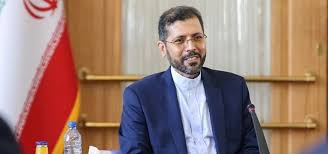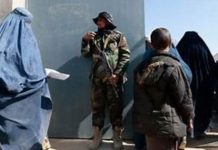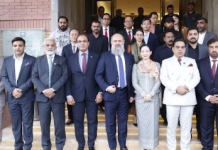TEHRAN: Iran is investigating an incident in which at least two Iranians were shot dead this week at the border with Pakistan, and Islamabad has handed over the body of one of the victims, the Iranian foreign ministry said.
Monday’s shooting of at least two people carrying fuel across the border led to protests that spread from the city of Saravan to other areas in the southeastern province of Sistan-Balochistan, including the capital, Zahedan.
A provincial security official has said calm has returned to the province with the help of religious leaders. Media quoted prominent Baloch Sunni Muslim religious leader Molavi Abdulhamid as urging calm and calling for an independent investigation.
“The body of at least one person was delivered by Pakistan’s border guards. We are reviewing the incident,” foreign ministry spokesman Saeed Khatibzadeh was quoted as saying by Iranian media on Friday.
Human Rights Watch said Monday’s shooting in the border area near the town of Saravan killed at least 10 people and wounded five, citing Baloch rights activists.
“The Iranian authorities should urgently conduct a transparent and impartial investigation into the shootings at the Saravan border,” said HRW Iran researcher Tara Sepehri Far.
“The authorities should hold those responsible for wrongdoing to account, appropriately compensate victims and ensure that border guards are taking the utmost precautions to respect the right to life and other human rights.”
Protesters stormed a governor’s office in southeastern Iran on Tuesday and set fire to a police car, according to videos posted on social media. Security forces used tear gas to disperse the crowd. The Reuters news agency could not verify the authenticity of the footage.
Sistan-Balochistan’s population is predominantly Sunni Muslim, while most Iranians are Shia. Iran has some of the lowest fuel prices in the world and has been fighting smuggling to neighboring countries.
HRW said the lack of employment opportunities in the province had left its ethnic Baluch population few alternatives to black-market trading with their fellow Balochis across the border.



















